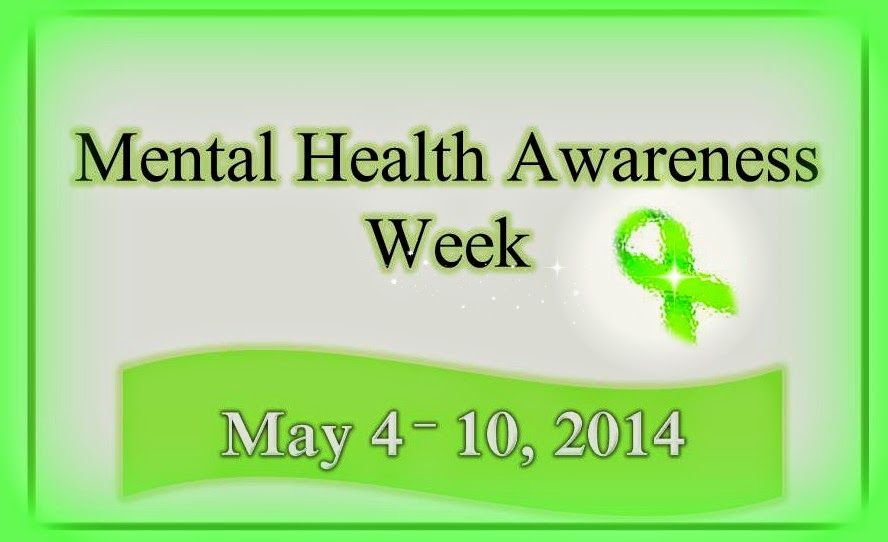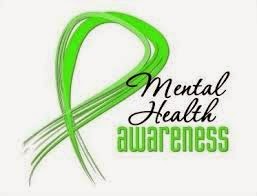While sitting at my desk the other day, a teacher brought down a student to my office. Unfortunately, I did not know the student (she was not in my section of the alphabet), but she looked really upset so I welcomed her into my office. Once in my office, she flopped down into a chair and tears began to stream from her eyes. My heart went out to this student and I said, "I am not sure if you want to talk, but I am here for you if you decide to talk to me." Looking uncomfortable, she faced the floor and wiped her face with her hands. The student looked disheveled (her hair was messy and her clothes were stained) and I noticed that her eyes were puffy. It felt like an eternity before she said anything to me and when she did speak it was soft and low. Softly she said, "I don't think this is a good idea...I am really okay." Okay, I thought, I just can't let this upset student leave my office. What I am going to do??? "I understand you not wanting to talk, but if you are not feeling better please know that I am here for you anytime." At first she got up to go, but then sat back down and started crying again. "I don't know what to do", she cried. "I just want to be like other kids and be able to stay in the classroom without getting into trouble!" She continued and said, "you know I have ADD, ODD, PTSD, and Tourettes and I just want to BE NORMAL!" She looked at me between her tears and then buried her head in her hands. Trying to lighten the atmosphere (which can be a big risk and sometimes backfire) I said, "Wow, you are a walking alphabet." "I know and one of the teachers said that I should be back in self-contained, but I DON'T WANT TO GO BACK!!!"
I won't go into our conversation, but she left better than when she came in. However, it was heartbreaking to hear her story about her mental health issues and her lack of mental health treatment. Besides this student, I have seen many students over the school year with an assortment of mental health issues. Just to summarize my year, here are just some of the symptoms I have seen in students:
- Senior with severe depression, anger issues, and suicidal ideations.
- Senior with auditory hallucinations. The student had a name for the voice that she has had since middle school. Voice often tells her to do bad things.
- Senior experiencing severe anxiety which causes digestive issues and migraines...leads to many absences.
- Senior with history of abuse, depression, and disappearing for weeks at a time.
- Junior experiencing severe anxiety to the point she was hiding in the bathroom.
- Sophomore displaying risky behaviors like skipping, outbursts, and leaving campus.
- Sophomore experiencing severe depression and anxiety causing her to miss school for weeks at a time.
- Freshman with suicidal ideations, depression, and low self esteem from bullying. She had a withdrawn physical appearance.
- Freshman with suicidal ideations, severe trauma, and reactive attachment disorder.
- Freshman with suicidal ideations and self mutilation.
- Freshman in foster care with ODD, violent tendency, and severe learning disorder.
All these students were referred to either our mobile crisis unit, an outside mental health professional, our school social worker, or school based mental health services. We are fortunate to have a great system of care, but there are many school districts that do not have access to services so many of their students go without mental health services. In fact, in an article by Today Duke, teens suffering from phobias or anxiety disorders were less likely to receive mental health treatment than students suffering from ODD, ADHD, or conduct disorders. Also, African American students were less likely to receive treatment than their Caucasian peers.
Mental Health Issues for Teens
Need information about teen mental health? The Adolescent Mental Health in the United States website has great information regarding the state of mental health of teenagers in our country. Due to hormonal changes and brain development, teens are more susceptible to depression and at-risk behaviors that impacts their emotional and mental well being. Many mental health disorders emerge during adolescence and 20% of teens have a diagnosable mental health disorder. Interestingly, 50%-70% of youth who have an anxiety or impulse disorder develop these disorders during adolescence. Untreated mental health issues can have negative results for teens. These results include dropping out of school, strained relationships, involvement with child welfare and DJJ, substance abuse, risky behavior, and even suicide. In fact, suicide is the third leading cause of death in teens.
Unfortunately, I see too many students with mental health issues who go without services. When students lack needed services, they suffer in their academics, in relationships, and with self confidence. In the last year, I have seen several students who suffer from past traumatic events and have suicidal thoughts. Thankfully, I was able to refer them to services, but I often think about those school counselors who do not have these local resources. Also, there is such a great misunderstanding and stigma about providing mental health services to students. Because of this lack of understanding, students often go without crucial services which continues into college. Often, parents think that students will "grow" out of their problems when they get into college and they will be okay. However, it is our job as parents and professionals to help students transition into college whether they have a disability or not. In order to do this job effectively, it is important as high school counselors to know what resources are available and to provide these resources to our families and students. A great time to educate students with disabilities and mental health issues about transitioning into early adulthood is the month of May. May 4th-10th is National Children's Mental Health Week which focuses on the importance of caring for every child's mental health from birth to young adulthood.
NAMI Mental Health Toolkit-this toolkit is from 2012, but works for any year!
What Can School Counselors Do?
- Provide meaningful relationships with students.
- Contact students and families about mental health services.
- Help students form a sense of attachment with school (clubs, sports, mentoring, peer helping, etc.).
- Provide resources and workshops for families.
- Participate in Mental Health Campaigns - One mental health campaign that you can encourage your local college to host in your community called Send Silence Packing.
- Educate staff and students about mental health stigma.
Resources for Display in Schools
Mental Health Fact Sheet
- Assist in creating a school crisis plan for students who have mental health issues when they are not in crisis. It is important to be able to support the student if he or she goes into a crisis and everyone is informed about the plan.
SPRC Safety Plan Template
Crisis Wallet Card (great example)
SAMSHA Guidelines in Responding to a Mental Health Crisis
- Inform students they can connect to mental health services on college campus
How to Work Effectively with Police When Youth Are in Mental Health Crisis.pdf
Resources for Students
Strength of Us-online community for young adults created by NAMI and other young adults. Young adults receive peer support and resources for issues that they are facing due to their mental health issues.
Some resources include:
Active Mind Mental Health Resources for College Students
Managing Your Depression
JED Foundation-Organization for the Emotional Health of College Students
Must Have Personal Information
Transitioning to College with a Mental Health Condition
Helping Families Support Students with Mental Health Issues in College
Resources for Families
Foster Club-Resources for foster students who want to attend college
Getting Accommodations in College
Must Dos Before Applying to College
Managing Your Mental Health Condition in College
The Why, When, What and How of Disclosure in an Academic Setting
What Happens to my Social Security When I Turn 18?
Things No One Told Me When I Left Foster Care
Vocational Rehab
Financial Tips
When to Disclose your Mental Health Condition in the Workplace
Applying for a Job
Resilience Card
Training and Resources for Schools
Description of Mental Illnesses
Songs About Mental Illness
300 Famous People Who Suffer From Mental Illness
Famous People Who Suffer from Mental Illness PowerPoint
CDC Mental Health Resources
CDC Human Development and Disabilities Resources
National Institute on Drug Abuse
Free Resources for High School Staff on Teen Drug Abuse
Office of Juvenile Justice and Delinquency
National Child Traumatic Stress Network
ACA Crisis Counseling
ACA Suicide Assessment
Disaster Mental Health Training for School Counselors
Youth Mental Health First Aid Training
The Current State of School Based Mental Health
Training on Teen Mental Health Concerns and Strategies for High School Staff
Way s for Teachers and Schools to Build Resilience in Youth
Understanding and Reducing Aggressive Behavior in Youth
Many Youths With Autism Lack Options After High School
Adolescents with a History of Maltreatment Have a Unique Service Need That May Affect Their Transition to Adulthood
Mental Health and Drug Abuse
Adolescent Mental Health Information
The Role of High School Mental Health Providers in Preventing Suicides
Webinar on Working with Homeless Youth and Runaways
Building Resilience in Teens
Organizations focusing on Mental Health for Students
Youth M.O.V.E
NAMI-National Alliance on Mental Illness
Center for Health and Health Care in Schools-School Based Mental Health
NIMH-National Institute on Mental Heath
Events
NAMI Walks
Send Silence Packing, Fall, 2014
Hope this information helps you to make an impact in your school!









This comment has been removed by a blog administrator.
ReplyDeleteThis comment has been removed by a blog administrator.
ReplyDeleteThis comment has been removed by the author.
ReplyDeleteThis comment has been removed by a blog administrator.
ReplyDeleteThis comment has been removed by a blog administrator.
ReplyDelete2023-1 NEXT and 2023 Premium Navigation Map Update
ReplyDeletebmw map update free
ReplyDeleteA student came to my office upset. Even though I didn't know her, I welcomed her in. She seemed really distressed and started crying. I offered to listen if she wanted to talk. She looked uncomfortable and didn't want to talk at first. But then she opened up about feeling different because of her conditions. She just wanted to be like other kids. I tried to lighten the mood by making a joke, but she continued to cry. She didn't want to go back to a self-contained classroom https://www.junkrecolet.com/
Thank you for sharing this deeply moving and important reflection. Your compassion and dedication to supporting students with mental health challenges are inspiring. It’s a powerful reminder of the urgent need for accessible mental health resources in all school communities.
ReplyDelete